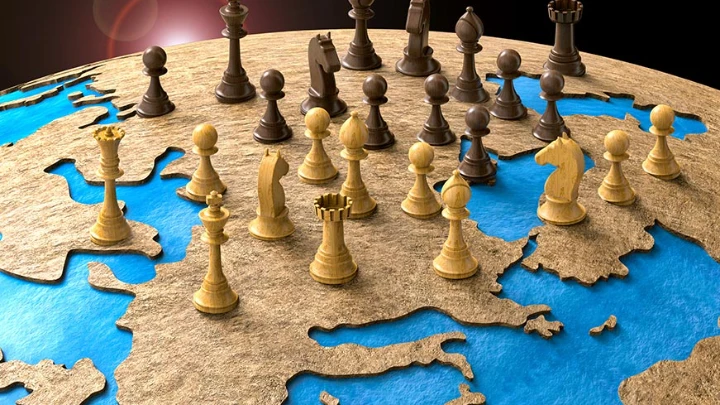These issues would be difficult to address at any time, but today they come amid a turbulent geopolitical context—one that is seeing a disintegration of the post-war international order.
As a result, leaders will not only need to address specific challenges but do so while finding agreement to build a global framework for promoting peace and prosperity in place of the aggression and economic uncertainty we are now experiencing.
What, then, are the dynamics that should inform leaders’ actions?
What 3 dynamics should inform leaders' actions in 2025?
First, leaders must account for a growth in seemingly irrational responses among their constituents and counterparts. Leaders can no longer assume domestic and global stakeholders will be guided by identifiable interests because polarized domestic and global politics may lead to decisions that appear counterproductive to external audiences. Indeed, some of the forces shaping these decisions are the result of not just deepening polarization but rising levels of misinformation.
The effect of geography on consciences is plainly visible in divergent responses to Gaza, Ukraine, and Sudan.
Second, leaders need to be ready for a growth in inconsistency. External commitments are made based on a state's location and domestic interests. The effect of geography on consciences is plainly visible in divergent responses to Gaza, Ukraine, and Sudan. Acceptance of double standards around the application of human rights and the responsibility or desire to protect are now more normal than the aspiration to universal values, such as those espoused by the UN Charter and Universal Declaration of Human Rights.
Lastly, leaders need to be ready for a growth in influential voices. Leaders will have to reckon with and listen to new actors, from business leaders to social influencers to rising states, many of who are unwilling to adhere to the status quo. The postwar ‘liberal’ consensus is being challenged as much from within as without—even those states that were the bulwark of post-war order contain strong domestic political forces that now contest it.
With these dynamics as a backdrop, what are the most pressing geopolitical questions leaders will need to answer in the year ahead?
Here are five questions for 2025:
How to advance security within a fragmenting global order?
Global cooperation is at a low point and conflict is escalating. Traditional leaders and institutions, such as the WTO and UN, have recently proved ineffective in delivering broad global consensus, or serving as a platform to resolve disputes. Countries and emergent blocs from across the Global South have not yet clarified whether they will serve as a salutary check on a declining West-led global security order, or simply play a disruptive role. Balancing this dynamic will also be Beijing’s task, given that it is at the centre of multiple new geometries—such as the proposed Global Security Initiative, the Shanghai Cooperation Organization, the Forum on China-Africa Cooperation (FOCAC) and a possible Russia-Iran-China axis.
Traditional leaders and institutions, such as the WTO and UN, have recently proved ineffective in delivering broad global consensus, or serving as a platform to resolve disputes.
The two most divisive conflicts in 2024—Russia's ongoing war in Ukraine and the conflict between Israel and Hamas in Gaza—emerged from long-standing frictions. That these conflicts suddenly inflamed, signals that the global security order is too fragmented to either maintain or negotiate peace.




